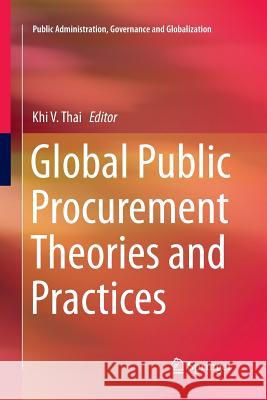Global Public Procurement Theories and Practices » książka
topmenu
Global Public Procurement Theories and Practices
ISBN-13: 9783319841205 / Angielski / Miękka / 2018 / 339 str.
Kategorie:
Kategorie BISAC:
Wydawca:
Springer
Seria wydawnicza:
Język:
Angielski
ISBN-13:
9783319841205
Rok wydania:
2018
Wydanie:
Softcover Repri
Ilość stron:
339
Waga:
0.50 kg
Wymiary:
23.39 x 15.6 x 1.88
Oprawa:
Miękka
Wolumenów:
01
Dodatkowe informacje:
Wydanie ilustrowane











